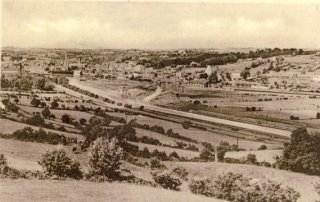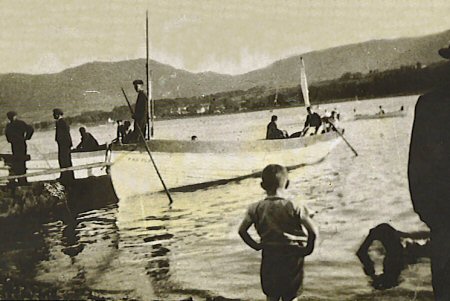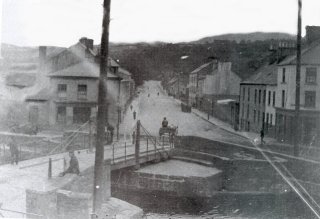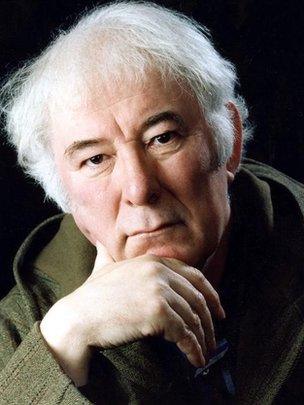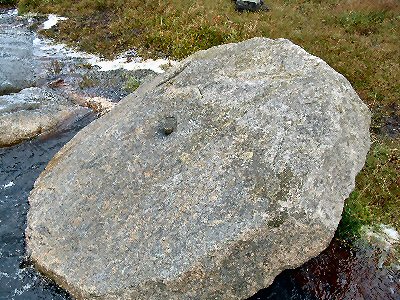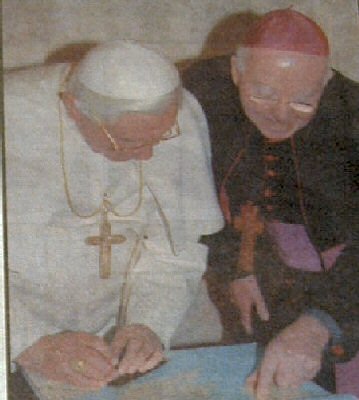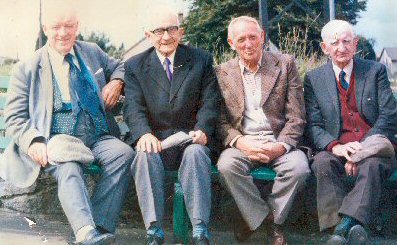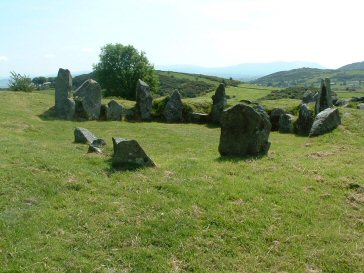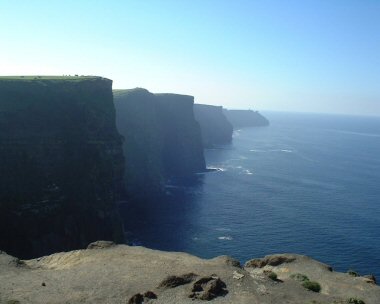Language
Oxymorons 2
Submitted poems : reflections
Of these three submitted poems, two (namely ‘McParland’s Elder’ and ‘McGinn’) are character based poetic fictionalisations of various characters in and around the town (McParland and McGinn being two distinctly local surnames). ‘McParland’s Elder’ is an ode to the elderly of the city whilst ‘McGinn’ is the story of a man observing his own wake and funeral (not very cheery, granted, but very Irish in it’s outlook nonetheless).
The other poem ‘Going to my Hometown’, is a sonnet written in dedication to the city and was inspired by many of the landmarks dotted around the place (namely, the old red-brick of the Hibernian Club on the Mall and the medieval church up on High St.)
Going to my Hometown
Parading a musty clop along the mall;
Redbrick and granite should glimmer in their boast.
Razing a glint in bier-garten toast,
I’m jealous – their sip, lip-locked – I’m enthralled.
The chivalrous sweat in musical droves,
Saluting the weather with world-weary wink.
The steeples, serene, without rain to drink:
A clan wry, a-flowing – a city of mauve.
Borderline bubble I love you so well.
I source you for boredom, ‘tis true, ‘tis true,
For dryness can seem here the hottest of hells
But I would be dead if ‘twas not for you –
A cynic. A liar. A lover. A son –
A soul wracked to bone mass from valley-sought glue.
McGinn
I
Thespian legion of repute and rogue
Wherefore to season my home with your lease?
Cast without shadow and latent in vogue
Celestial yearnings burn without cease.
For human endeavour seems that of beast
When repertoire years are draping the squelch;
No requiem breast nor angel nor priest
In scant distillation can prove what I felt.
And though there were eve’nings in spite of myself,
Where lingered my spoils ‘pon high in the din,
I sired the void, alive and in health,
To slump down, a coward, and die with my sins.
“What friends, indeed, can
be said of McGinn?”
Seized up from the swell then through shuffling slits.
‘twas one from my past, though not of my kin,
Who’d shamble my bygones in idler twist.
“Well, let my retort
reveal to you this”
Responded my sibling, eye on my corpse,
“He was my brother and
though he be missed,
They’ll ravage his ghost
with sulphur and scorch;
They’ll send for his
passions, singed like a torch,
Drink them to blackness
and pluck him from thought.
Heathen of helix and
harlequin sport,
Hath thou no inkling, the
havoc you wrought?
A bold moment-muse of what
we all sought?
Wanting our brother, or
what for the word
Could heal you of stealing
the years we had brought.
For all that was owed us:
a man of the world.”
Only ‘twas then that time, stuck, unfurled
And eve’ning careered t’ward morning, t’ward fate.
When bones hold to dust by death, that old churl,
My years be reduced to scripture and slate.
For I have been poisoned by seasons in wait –
Weights worth the farthings they stuck to my eyes;
Sliding through epochs that harboured the great
And mock the mere mortals of meaning deprived.
‘tis that, as I laboured ‘mong mirrors they hide,
Residing in pine with beads in their coil,
That creased up and burned my thoughts ‘fore the guide
Of sinner McGinn to a patch in the soil.
II
My screed reads no softer after such toil,
No smoother a tale to be taught at your teat.
That my soul had not descended
to boil,
Nor had I with saints or skivvies to speak.
‘twas in my cortege ‘midst eyes without weep
And great sweeping haloes of droves in their drear
Where I’d come to shamble in rambling grief;
My infinite seal – a death without peer.
The chapel then, ceding in vaulted veneer,
Seemed placid, indiff’rent; a tomb without taste,
And I, of the asinine angular weird,
Sat nursing my years in debt and disgrace;
Though steadfast my legion not to make haste –
Not for the glibness nor gallons nor grime;
Nor e’en for wallowing Whitsuns of waste
Which, woven, made whimsical dust of my time.
No, friends! My kin were not even inclined
To whisper a shudder in lieu of myself;
Their benches, distended in line upon line
Had last term to conjuring sobs where they knelt.
And I, a poor reckoner, dumbfound and welt,
Who picked at his scars with bottle and beak,
Have culled from my friv’lous happ’nings health
And smile that my bygones weren’t utterly bleak.
The service, now ended, spilled out to the street;
The heat of the noon scald shapes and disrobe.
Of courage without, I slunk in the speak
And pictured my corpse garrulous and in globe.
With words said and skies pulled the hollow was lowed,
And dignified drops of a soil were dispensed,
And after the shapes had shuffled their shoad,
I stood for awhile to invite forth the hence.
I stood for a decade in sin recompense,
And pleaded with weathering debris and silt;
I stood for my penance, for death to commence,
Though condemned am I to be held by the hilt.
I cornered my prayers then, my flowers in wilt;
I threatened the heavens with nothing to stake –
But, reader, my anguish is always my guilt.
Is this script appendage enough for my sake?
Gaelic Words in our Speech
We will soon resume our Dictionary of Fews Dialect. First, here is a small extracted selection to illustrate how so many of these words came to us from the ancient Gaelic language.
Amadan, amadan fool
Avic, a mhic son [‘old pal’]
Areesh, ar
Amadan gets it wrong!
The Quest… by Robert Service
I sought Him on the purple seas,
I sought Him on the peaks aflame:
Amid the gloom of giant trees
And canyons lone I called His name;
The wasted ways of earth I trod;
In vain; in vain! I found not God.
I sought Him in the hives of men,
The cities grand, the hamlets grey,
The temples old beyond my ken,
The tabernacles of today;
All life that is, from cloud to cloud
I sought … Alas! I found not God.
Then after roamings far and wide,
In streets and seas and deserts wild,
I came at last to stand beside
The death-bed of my little child,
Lo! As I bent beneath the rod
I raised my eyes … and there was God.
The photo above is of His Holiness the Pope, with Dr John McAreavey, then Bishop of Dromore – a man destroyed by Steven Nolan, may God forgive him.
‘Grandad’ by Robert Service
Heaven’s right ‘n sweet, I guess
In no rush to get there
Been a sinner, more or less
Maybe won’t fit in there.
Wicked still, gotta confess
Might just pine a bit there!
Heaven’s swell, preacher says
But got so used to earth here
Had such good times all the way
Frolic, fun and mirth here.
Eighty springs ago today
Since I had my birth here.
Quite a spell of happy years
Wish I could begin it
Cloud and sunshine, laughter, tears
Living every minute
Women too, the pretty dears
Plenty of ‘em in it.
Heaven! That’s another tale
Mightn’t let me chew there
Gotta have me pint of ale
Would I like the brew there?
Maybe I’d grow slack and stale
No more chores to do there.
Here I weed the garden plot
Scare the birds from pillage
Simmer in the sun a lot
Talk about the tillage.
Yarns of battles I have fought
Greybeard of the village.
Heaven’s mighty fine, I know
Still, it ain’t so bad here
See them maples all aglow
Starlings seem so glad here.
I’ll be mighty peeved to go
Scrumptious times I’ve had here.
Lord, I know You’ll understand
With Your Light You’ll lead me
Though I’m not the pious brand
I’m here when’er You need me
Gee! I know that heaven’s grand
But darn it! God, don’t speed me.
Blinne’s Stream
Blinne’s Stream
St Moninna of Killeavy was also known by the pet name Blinne (spelling variations: for ‘baby’). The following poem is sung to the same air as The Bell of Bronagh – a favourite of Matthew McGrath of Star of the Sea Church Rostrevor – words by Siobhan O Duibhainn. It is likely that the air is ancient, predating by centuries the words printed below. The mix of Gaelic with Sassanagh implies to me that the original was entirely in the native tongue.
If I can persuade Matthew to record Bell of Bronagh to Youtube, I will create a link.
The moon in splendour shone one night on valley, glen and hill
A thousand stars looked down from heaven and all the world was still
As I walked the road to the holy shrine that oft I longed to see
And a stainless child walked by my side to Blinne’s stream with me.
With merry jest and happy laugh unheeded passed the hours
No thorn lay in my path that night ‘Twas strewn a stor with flowers
And I forgot my own sad lot A chara oig mo chroi
You banished grief the night you came to Blinne’s stream with me.
And now is hushed the merry laugh while the Rosary we said
For kith and kin, for friend and foe the living and the dead
And all whom God afflicteth with pain and agony
Was it angel bright that walked that night to Blinne’s stream with me.
And when we reached the hallowed shrine we knelt in silence there
Again I prayed for those who find life’s burden hard to bear
And I begged God’s holy mother to preserve the purity
Of the spotless youth who came that night to Blinne’s stream with me.
Had I my wish thy path would be for ever bright and fair
No sorrow, no deep anguish should ever be thy share
Thy crosses I would gladly bear a mhile gradh for thee
Who came one happy moonlit night to Blinne’s stream with me.
